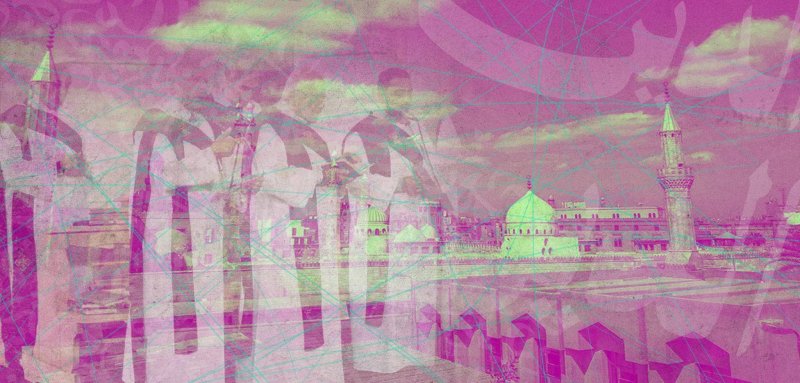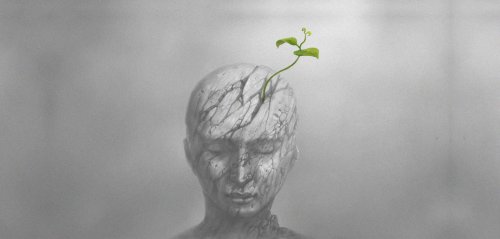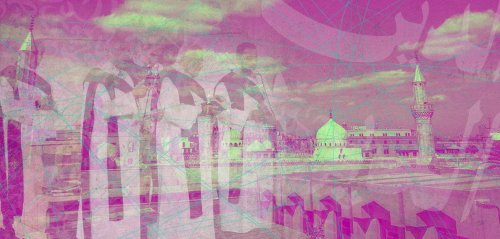I grew up in a Muslim family. My grandfather was a member of the Council of Senior Scholars at al-Azhar, and my father was a practicing Muslim. When I was a child, he would ask me to memorize verses from the Qur’an, to recite them to him in the evening as he was prepared to return to his law firm to meet clients. He not only cared about making sure that my memorization and pronunciation were correct, but also gave the same importance to understanding the intended meaning of the Surahs.
A few years later, my father would take me with him to attend Friday prayers in Imam Al-Hussein Mosque (aka Sayyidna Husayn Mosque). Before prayers, he would meet with a group of childhood friends – doctors, engineers, businessmen – in a store on al-Azhar Street, and then they head to the mosque together.
At other times, my father and I would observe Friday prayers in the mosque of the Ahly Sports Club, and after that we’d play sports, mostly swimming and squash, which I excelled at. At no time did my father pressure me to practice Islam, but rather I think he wanted to set an example for me through actions, instead of words.
Religion, as I understood growing up, was not limited to rituals and worship. It was also a system of values that governed the way we deal with ourselves and with others. I saw some of these values in my father’s dealings with others; how he would secretly help the less fortunate, acquaintances or strangers, how gentle and humble he was when dealing with those that are weaker, how mighty and steadfast he was in defending what was right, how friendly he was with everyone – Egypt at the time was a thriving melting pot – regardless of belief, origins or nationality – we are all human and that’s the most important thing – and how he, a man of rural origins, was keen on expanding his knowledge and broadening his horizons: he would listen to Western classical music, he would work on improving his ability to speak foreign languages, and he would seize every opportunity to get acquainted with different cultures.
I studied Sharia and the principles of fiqh (Islamic jurisprudence) at the Faculty of Law at the hands of respected and honorable scholars. After my graduation, I did not pay any attention to the differences that set me apart from others: their clothes or food, beliefs, way of thinking, or their way of life. These were, in my opinion, issues that fall within the scope of personal freedoms, something that I shouldn’t pry into. It was important to me that dealing with others is something that’s based on the human values that we all share: honesty, integrity, justice, respect for others, and righteousness. This was and still is my understanding of the Islam that I grew up with: core values that we share with others, foremost of which are equality, tolerance, solidarity, as well as having values and acts of worship for each faith while respecting the rights of others to practice theirs in the way they see fit; in addition to having a space available to everyone for privacy and personal freedom, where no one violates the rights of others or tries to impose his own beliefs.
Even though the Egyptian constitution has stipulated, since 1923, that “Islam is the religion of the state… and Islamic Sharia is the ‘official’ source of the country’s legislation”, the prevalent culture in society has been that faith is a personal freedom that the role of the state is limited to regulating and protecting on the basis of equality for all. At the time, the “delimitation of borders" between religion and the state – or more precisely between Islam, law and morals – had not become a controversial issue or came to the surface in a prominent way.
An Expatriate
Not long after I graduated, I traveled to work and study in USA, which was said at the time to be “a melting pot”, a mixture of all races, kinds, religions, languages and cultures. New York, the city that I settled in, was a small version of earth with all its diverse people. Perhaps one of the most important observations that caught my attention was that despite the many social, economic and political differences and contradictions – racism first and foremost – none of them were attributed to religious or ideological reasons. I do not know if this is the result of the US Constitution necessitating the complete separation of religion from the state, as a reaction to the first immigrants who suffered from religious persecution in Europe, or if this was due to the sheer number and diversity of the different faiths there… I do not know, but what I noticed is that they largely succeeded in removing religion from their disputes (even if there has been some setback in this regard in recent years) and it is difficult to find an official document that mentions a person’s faith or even for someone to ask you about your beliefs.
Perhaps another important observation that I noted here is that despite the attempt of society to separate religion from state, there still was a strong societal insistence on everyone to commit to the constitution and the common core values found in faiths. Tax evasion, for instance, is a crime that is unforgivable because it is a crime against society as a whole. It goes without saying that I witnessed many actions and behavior that reflect the higher values and noble sacrifices of people belonging to different philosophies and faiths. This increased my conviction that basic human values are not exclusive to one single race, people or faith.
My experience was not much different in Austria, where I ended up living far more years than I had in America. Although the majority of the population of Austria is Catholic, the constitution clearly stipulates freedom of belief, religion does not play – at least not directly – a role in politics or societal conflicts and clashes.
Polarization Over Faith
In Egypt, as in other Arab countries, I noticed there has been a significant change in the general atmosphere since the early 1980s due to political, social and economic reasons. Severe societal polarization based on faith had begun to dominate other societal differences and discord. This was not only limited to those with different beliefs, but also among those of the same faith. We began to hear about the “Islamists” as a group separate from the rest of the Muslims, as well as violent rifts and accusations of takfir (being infidels), as we began to see dangerous and worrying phenomena of groups using violence and justifying it in the name of religion with the aim of implementing “true” Islam and establishing an Islamic state.
In Egypt, as in other Arab countries, severe societal polarization based on faith had begun to dominate other societal differences and discord. This was not only limited to those with different beliefs, but also among those of the same faith
When I returned to Egypt in 2009, religious polarization was at its peak, and demands increased for the necessity of implementing Sharia (along with endless disputes over the content and interpretation) as a starting point for an Islamic renaissance in the state, and for the constitution to have an “Islamic flavor”. The divisions reached a point where everything was seen from a religious perspective, so much so that even a difference of opinions between two Muslim parties would be reduced to one of them “hating” Islam, and may be declared an infidel through a simple fatwa. Moreover, the differences between various sects such as the Sunnis and Shiites, have become much more violent and intense than that of those between different religions, and are being used as a justification for conflicts and wars.
In this charged atmosphere, whether by the established authority or by the self-appointed guardians of religion, the space for freedom of expression – which we need now more than ever to address the unprecedented challenges we are facing – has been significantly reduced, public discourse began deviating towards marginal matters at the expense of what Sharia really dictates.
A man wearing a gold ring, buying sweets for the Prophet’s birthday, or sending Christians well wishes on their holidays; matters such as these now gain more notice and discussion than the system of “Shura” and democracy in Islam, the sanctity of life, or relieving millions suffering from poverty, disease and inequality. We have somehow lost the big picture: form has now become more important than content, the sect has become more important than the origin, and means are now more important than the end; What is even more frightening in all of this is that we are now highlighting what divides us, undervaluing what unites us, and ignoring the need to agree on it.
We have somehow lost the big picture: form has now become more important than content, the sect has become more important than the religion itself, and means are now more important than the end
What I mentioned here is not with an aim of adding fuel to the fire of controversy and debate, but rather to sound the alarm: The polarization over faith in our region – and in particular the dispute over the relation of religion with state, law and ethics, as well as how to distinguish between the private and the public – has become a pretext for sharp divisions and deep rifts, a hotbed of opportunism, and a cover for wars and conflicts, completely contrary to what faith should really be: a basis for compassion and harmony among its people on the one hand, and for solidarity over the basic human values that unite them with others on the other.
Today, more than ever, we are in desperate need for a radical reform movement in the Arab and Islamic world where we would purify heritage, focus on reason and science, agree on true faith, and distance it from exploitation by forces of extremism so that it would be a system of values that push us forward and not a stumbling block that hinders our cultural progress.
*The views and opinions expressed in this article are those of the author’s and do not necessarily reflect the official policy or position of Raseef22
Raseef22 is a not for profit entity. Our focus is on quality journalism. Every contribution to the NasRaseef membership goes directly towards journalism production. We stand independent, not accepting corporate sponsorships, sponsored content or political funding.
Support our mission to keep Raseef22 available to all readers by clicking here!
Interested in writing with us? Check our pitch process here!







